The Peralta Community College District restricted access to the FAS (faculty, administration and staff) listserv during the first week of April, resulting in many PCCD employees speaking out about the sudden change.
Chancellor Regina Stanback Stroud had first floated the idea in her January professional development day address, citing “vitriol” as justification for the restriction.
The decision to restrict the listserv — which faculty say came with no warning, guidelines, or union negotiation — inspired district employees to speak out during public comment at the April 7 Board of Trustees meeting on Zoom. Protestors donned taped mouths and held signs that read “censored.”
For years, the FAS listserv has been the primary platform for district-wide communication between faculty, administration, and staff (FAS). Everyone employed by Peralta could use it to communicate announcements, events, or concerns to everyone else in the district.
On April 2, Peralta employees discovered that the resource was no longer available, meaning they were unable to communicate on the district-wide scale they were accustomed to. While there had been talk from the district of taking these actions in past months, the change took employees by surprise.
“The way it was rolled out was a bit backwards,” said Laney Faculty Senate President Fred Bourgoin at the Board of Trustees meeting.
“We were prevented from using those listservs on Thursday afternoon, but the official announcement did not come until Friday. That sounds like a short time, but let me tell you, it created havoc.”
During public comment, community members analyzed, and criticized several components of Stanback Stroud’s restriction of the listserv, questioning the justification and potential impact.
Employee concerns
District employees voiced a number of reasons they value access to the FAS listserv, such as the importance of disseminating resources as professors struggle to convert to online learning, or sharing student successes with the campus community. Others said that without the listserv, violations of the Brown Act (which requires public meetings of legislative bodies to be announced at least 72 hours in advance) are hard to avoid. One speaker said that in the past, the listserv has shed light on safety concerns and identified people who might not “have Peralta’s best interest in mind.”
During public comment, Peralta Federation of Teachers (PFT) President Jennifer Shanoski questioned the timing and motivation behind the restrictions, saying that the district should be focused on serving students rather than fighting with bargaining units and constituents.
Later, in an interview, she elaborated: “It really is a case of faculty working conditions are student learning conditions,” she said. If faculty aren’t receiving support from the district, whether that means communication via the listserv or materials needed to teach their classes, students will be negatively impacted, Shanoski said.
“[If] faculty don’t have the training or the technology, the supplies they need to teach their classes, [then] they’re not going to be able to deliver the content that students need.”
Ann McMurdo, a counselor and PFT campus co-chair at Laney, voiced similar concerns at the April 7 meeting: “District, colleges, and especially the PIOs [public information officers] need to focus on communication with students and potential students, not attempting to control faculty and staff communication.”
District justification
The district has cited two reasons for the change. At first, the chancellor said it was because of vitriol, but more recently the district cited a need for “modern” and “appropriate” communication.
“[Restricting the listserv] is consistent with practices in the community college system,” Stanback Stroud wrote in an email to the Citizen April 13. “While there are some districts that allow for the ability to distribute information and/or spam the entire district by anyone in the district, most do not.”
Shanoski argued that comparing Peralta’s system to those of other districts is beside the point. “Just because other districts don’t operate with the same FAS list, well that’s fine. Other districts also pay their faculty on time. I mean, we can think of many ways that we’re different than other districts.”
Mark Johnson, interim executive director of public information, communication & media, explained that the district feels the system is outdated.
“While email distribution lists have been relied upon by some members of the Peralta community, as a whole and on the individual campuses, email distribution lists are an antiquated technology,” he said.
Vitriolic emails
Stanback Stroud said the change to the listserv will help make the shift to communication on other platforms, which “supports the use of modern technologies that the district has invested in.” In January, when Stanback Stroud first spoke about her concerns regarding the listserv, she cited vitriol as the district’s justification for streamlining the email communication system.
“There is a level of meanness, disrespect, and contempt, and vitriol that gets spewed in this district that impacts the culture,” she said at Peralta’s professional development day on Jan. 16. She said that because “everybody can send everything to everybody across the district,” the email system contributed to that culture.
“We’re not talking about just a handful, there are scores and scores of problematic emails.”
-Interim Executive Director of Public Information, Communication & Media Mark Johnson
In a Jan. 9 international affairs podcast that featured Stanback Stroud, she again discussed her concern surrounding district emails.
“I will be honest and tell you the very first week I was here, I introduced myself to the district by responding to an email, because I had gotten emails that had gone out to the whole district where people were having discussions of such vitriol,” Stanback Stroud said. She did not respond to questions from the Citizen seeking to clarify which emails she was referring to.
Stanback Stroud asserted that because of vitriol and the spread of misinformation with ensuing threat to liability, the listserv access would be reevaluated. She put a 30-day deadline on the change. Shortly afterward, the Laney College Faculty Senate drafted and passed a resolution requesting consultation and expressing concern regarding “parameters of academic freedom.”
Although the speech occurred in January, the district made no changes to the listserv until Thursday, April 2, when access was abruptly severed.
Some argue that the chancellor’s justifications are insufficient and her examples of vitriol are decontextualized. At January’s professional development day, she said that her “favorite example” was an email sent by a faculty member upset by a “payroll mistake,” which referenced lyrics from Rihanna’s song, “Bitch Better Have My Money.”
Since Stanback Stroud’s comment, the email has been circulated and heavily scrutinized by district employees. A detail that faculty have pointed out is that the email was sent in Sept. 2018, while the chancellor was hired in Oct. 2019.
In an email to the Citizen, Stanback Stroud said this email was forwarded to her “as a warning of the type of culture I would be entering.”

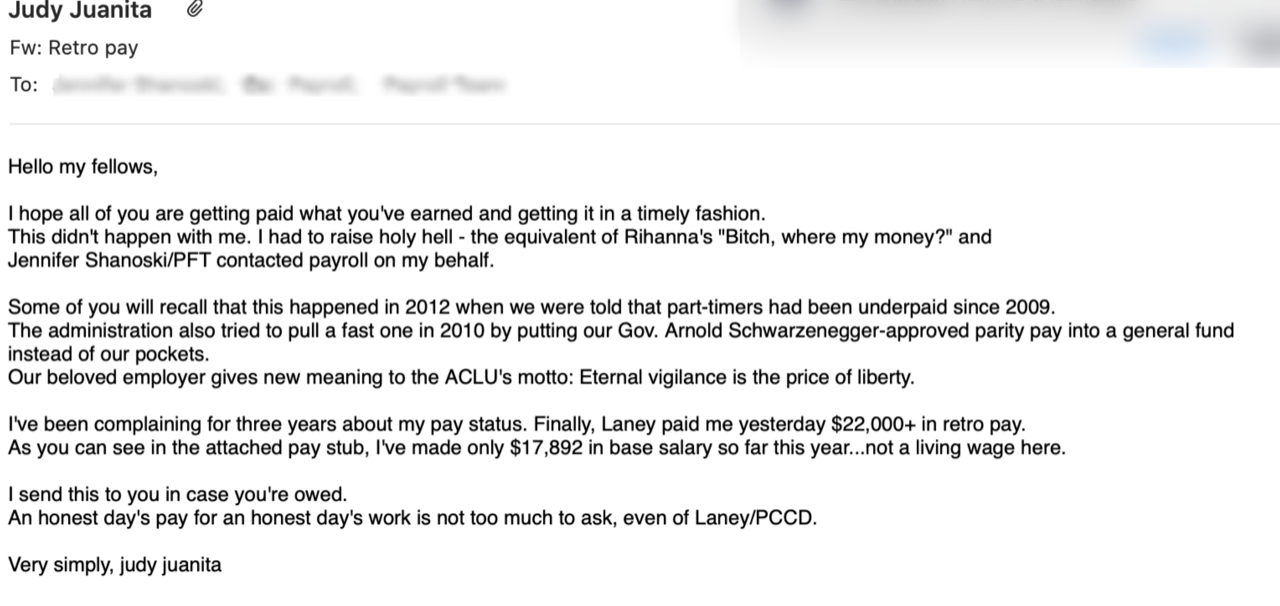
“I don’t think this is vitriolic, it’s strong language,” said Laney English adjunct professor Judy Juanita, who wrote the emails.
“It’s me exposing an egregious systemic fault by letting my peers and fellows at PCCD know that the district shorted me.”
Stanback Stroud also mentioned Girl Scout Cookie solicitations in her professional development day address, which was met with counter arguments at the April 7 Board of Trustees meeting.
“In the last fifteen years, because I keep all the emails, there is one reference to Girl Scout Cookies, six years ago,” said Lepowsky. The email was not a solicitation, but a comment reminiscing about an employee who had died.
McMurdo chimed in: “I hear Girl Scout cookies, as was mentioned, is an issue. Personally I like Thin Mints and Samoas, but if I don’t want to buy any, I know where the delete button is located.”
Trustee Linda Handy also said that she has heard about racist comments as a recurring issue in listserv emails during the 18 years she’s been at the district.
“People have behaved badly. People have been outright racist,” Handy said. “The thing that I’ve found absolutely amazing about the speakers today is they spoke about Girl Scout cookies, but not one person addressed the racist comments and the mean-spiritedness.”
The Citizen reached out to Trustee Handy for details or access to emails that she referenced, but did not receive a response before the time of publication.
At the April 7 Board of Trustees meeting, Trustee Karen Weinstein urged the chancellor to reconsider the change to the listserv and addressed concerns about vitriol.
“In this country, there’s a lot of hate speech that’s protected,” she said.
“What we do is we try to educate people. We don’t usually try to shut down the whole thing, we shut down the person. And that’s usually through education, and learning, and communication.”
During public comment, other faculty shared Weinstein’s perspective, wondering why the district would censor everyone over a few isolated incidents.
“We’re not talking about just a handful, there are scores and scores of problematic emails,” said Mark Johnson.
The Citizen reached out requesting access to further examples of “problematic” emails but were not provided any by the district by the time of publication. The district also had no comment regarding which specific policies were violated by the emails previously referenced by the chancellor.
Questions about collaboration, First Amendment
Many, including Shanoski, complained that the administration did not adequately consult faculty in making this decision and others. Noting that faculty and administration have disagreed numerous times in the past, “We have always communicated, and we’ve eventually found ways to work together,” Shanoski said. “I don’t feel like that’s any longer true.”
On Jan. 31, after the chancellor first spoke about restricting the listserv, PFT sent a demand to negotiate with the district as is written in the contract. They sent a follow-up letter on Feb. 10, but all attempts to communicate about the listserv went unanswered.
On April 7, the union filed an Unfair Labor Practice after the listserv was eliminated without negotiation or warning.
Many faculty who appeared at the April 7 Board of Trustees meeting claimed that their freedom of speech has been violated.
“Can we at least basically respect the Constitution of the United States?” Vice President of the Peralta Federation of Teachers Kimberly King questioned.
“These are serious issues of shared governance and collective bargaining. Chancellor Stanback Stroud is ignoring the important aspects of democracy in a college environment.”
Trustee Linda Handy, who seemed in favor of restricting the listserv, disagreed.
“This is a change for the better. You’re not losing anything other than what shouldn’t be there in the first place, but everyone will have the ability to communicate if they want to.”
No faculty who spoke at the board meeting were in favor of the change.
“It seems that the district has chosen to double down on shutting out the faculty senate and the faculty union almost entirely, in violation of the law and the contract,” said Jeffrey Sanceri, PFT secretary and grievance officer and College of Alameda district academic senate representative.
Trustee Nicky González Yuen reminded his fellow trustees that at their previous meeting, the board passed a resolution authorizing the chancellor to take emergency action, and that the language of the resolution called for communication between the district and other stakeholders.
“This just looks like a sledgehammer trying to kill an ant,” he said. “This just seems like an incredible overreaction to a relatively small problem, and the damage that is being done to the district morale through unilateral action here is exactly what this board told the administration not to do in the resolution that we passed two weeks ago.”
District response to outcry
“I don’t think that there’s probably much that I would be able to say to satisfy some of the concerns that are expressed,” Stanback Stroud said during her chancellor’s report at the April 7 Board of Trustees meeting in regards to accusations about censorship.
Stanback Stroud identified a number of ways district employees can still communicate. The listserv itself has not been eliminated, but it is not available to most faculty, administration, or classified professionals. Leaders of collective bargaining units, campus-based governance groups, college executive staff, and district level representatives all have the ability to communicate with their constituents, Stanback Stroud said.
“I do not want to be the person that is in charge of all union communication with all faculty,” said Shanoski, who is one of three people who can directly access the union email list. She is also concerned about no longer being able to correspond with other bargaining units freely.
In place of a district-wide FAS listserv, the district installed a new system — distribution lists. Those with messages they would like to spread district-wide can email [email protected], Stanback Stroud said, but the public information officer will review the message before distribution. If the announcement is not community-appropriate or doesn’t pertain to everyone in the district, it likely won’t be distributed, according to Johnson. In those cases, emails will go back to the sender with recommendations.
There is not a reply-all function for emails sent via [email protected], unlike the previous FAS listserv.
“You can’t say objectionable things or unprofessional things through email or telephone and those are the rules that will apply for the distribution lists,” he said. The goal, according to Johnson, will be to distribute announcements within one business day of receiving them.
The guidelines were not released before restrictions were implemented. Johnson said the change came abruptly and without guidelines because of COVID-19. He said that plans to restrict the listserv were originally put on hold because of the pandemic, but ultimately the district decided to move forward without the guidelines in response to the pandemic.
Johnson said he had heard concerns that important district messaging around COVID-19 updates had been buried under the influx of emails.
“Employees are spamming other employees,” Johnson said. “There are a number of other employees around the organization that have expressed concerns about the volume of email, and the tone of the email.”
“This just looks like a sledgehammer trying to kill an ant. This just seems like an incredible overreaction to a relatively small problem, and the damage that is being done to the district morale through unilateral action here is exactly what this board told the administration not to do in the resolution that we passed two weeks ago.”
-Trustee Nicky González Yuen
When pressed to explain the rationale behind the abrupt and significant change in communication structure without explicit guidelines during a pandemic, Johnson had no comment.
In defense of the listserv, Shanoski addressed those who aren’t interested in the emails as well: “A few people don’t like the FAS emails, but in fact you can put a filter up on your email and have them all go to a folder. You never even have to read them. You don’t even have to press delete.”
An uncertain future
After listening to nearly two hours of public comment, largely in complaint of the listserv restrictions, Stanback Stroud said that she “want[s] to take into consideration and be able to incorporate suggestions” into the new system.
As the district scrambles to handle pushback, faculty remain adamant. With courts closed because of the shelter-in-place order, the union’s filed Unfair Labor Practice, which includes a charge about the listserv, cannot be addressed.
“It seems that the next big problem that the district administration is going to face, probably in the near future, is an entire body of faculty who decides that it is in their best interest to return the exact amount of respect that the district administration has given them,” said Sanceri.
“As faculty, our integrity, our self-respect, and a love for our students runs deep, and we won’t let go of our power to speak quite so easily.”
Christy Price contributed reporting.






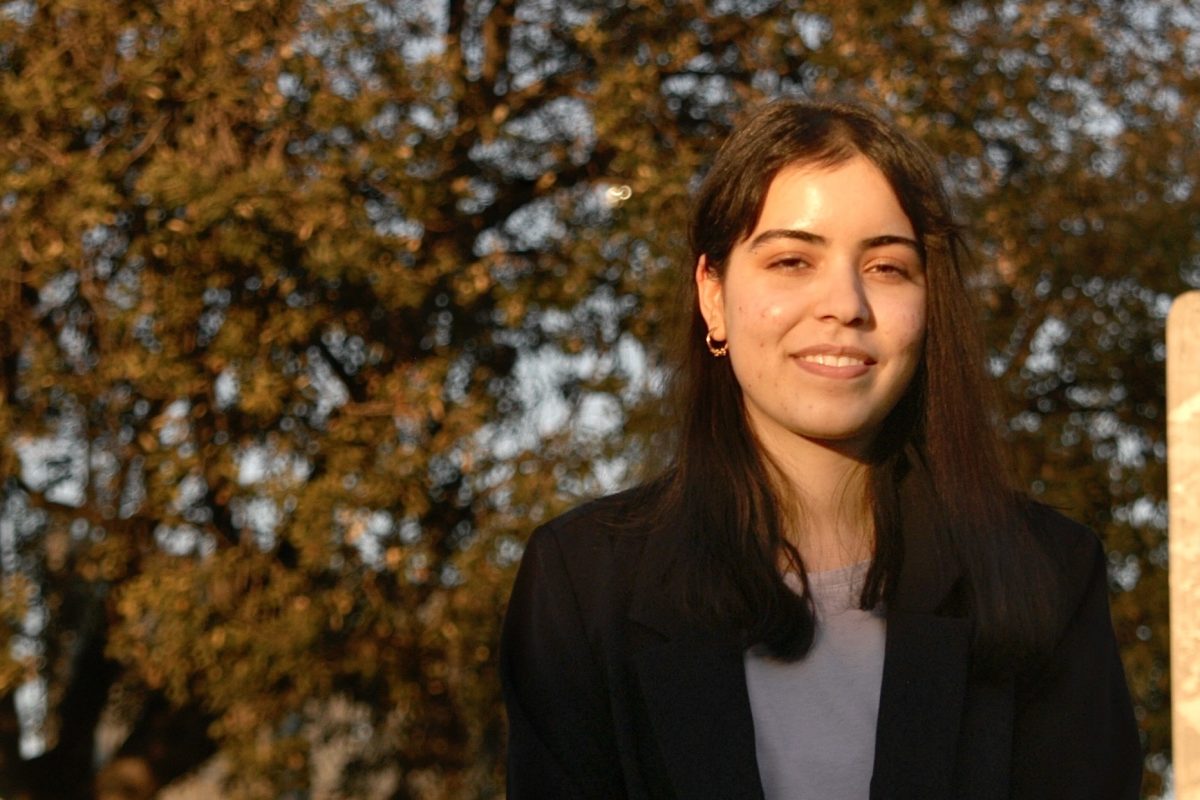

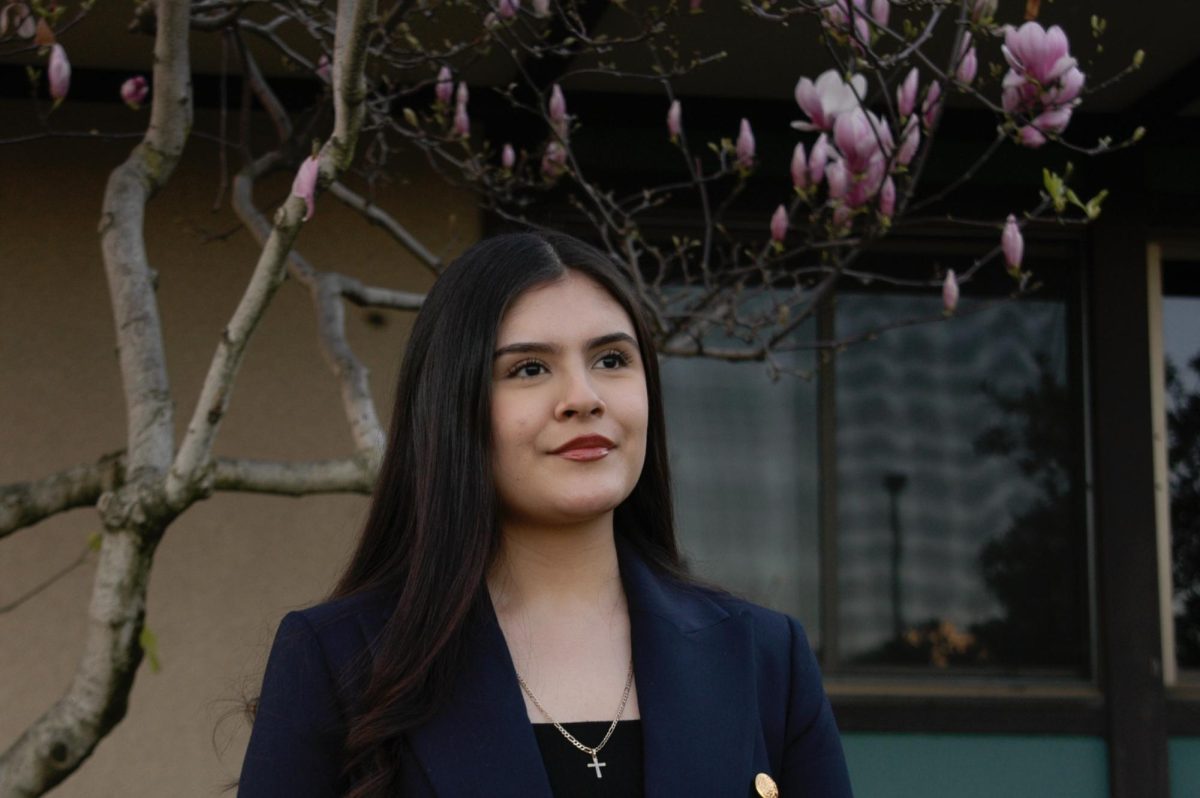









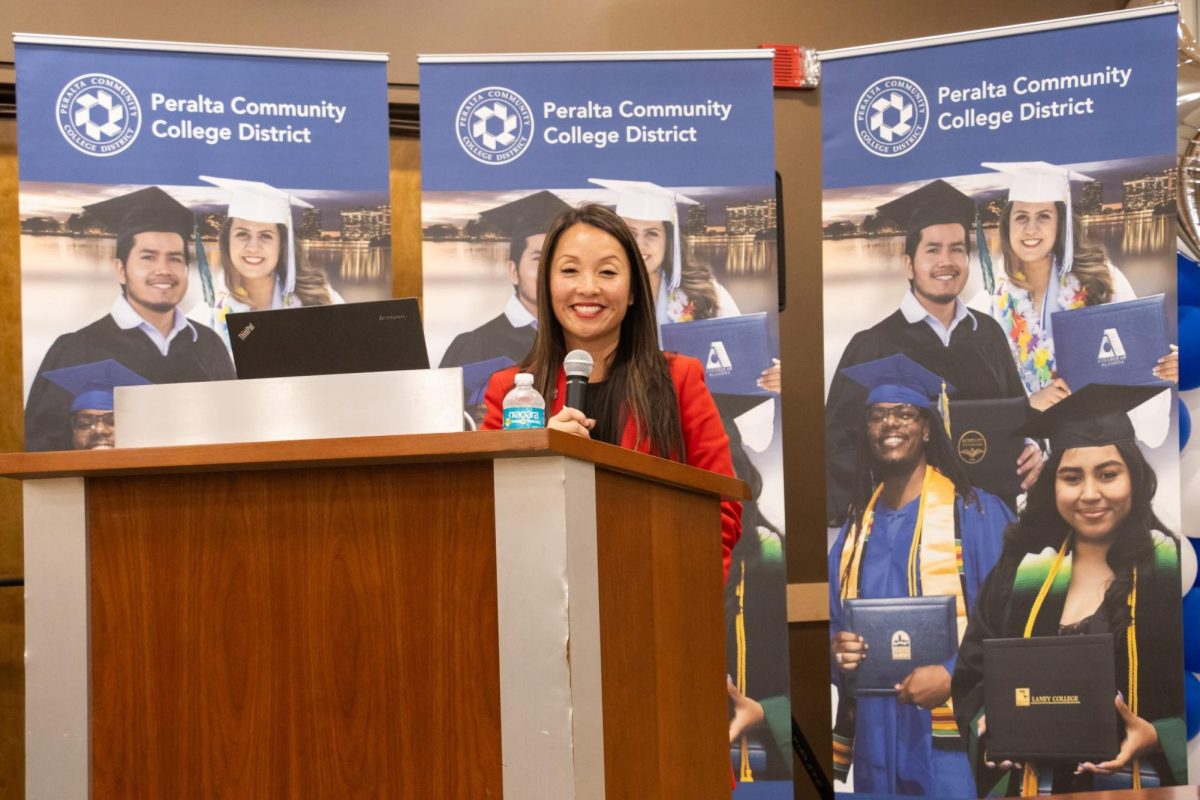



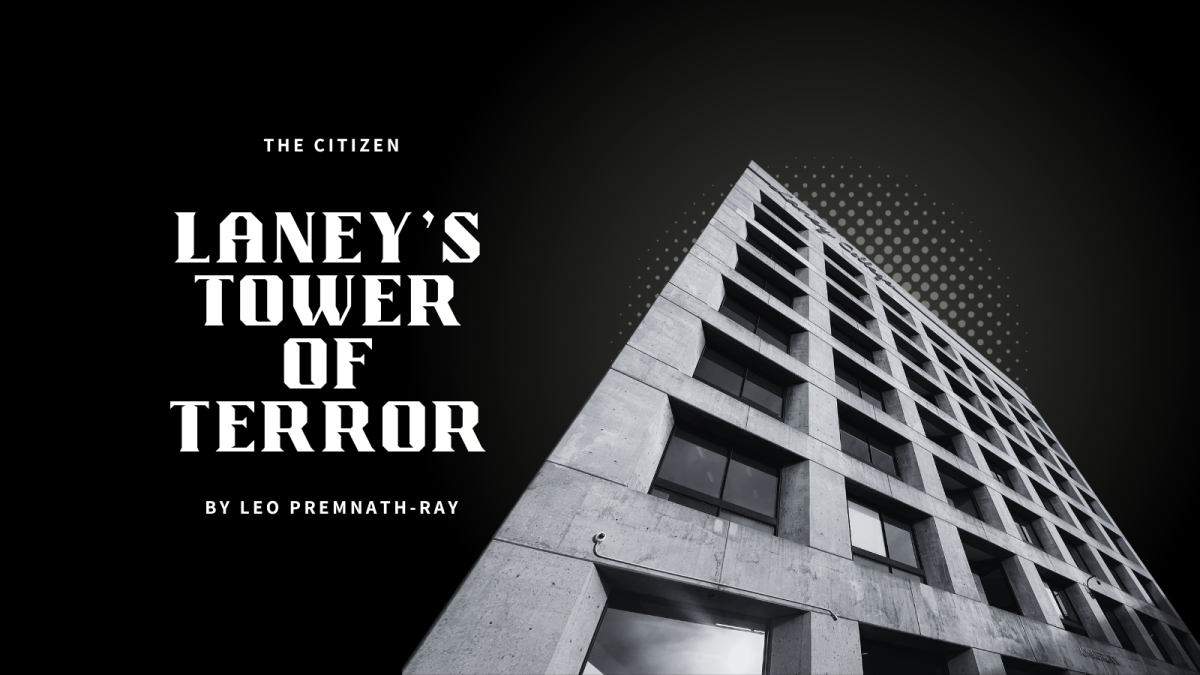





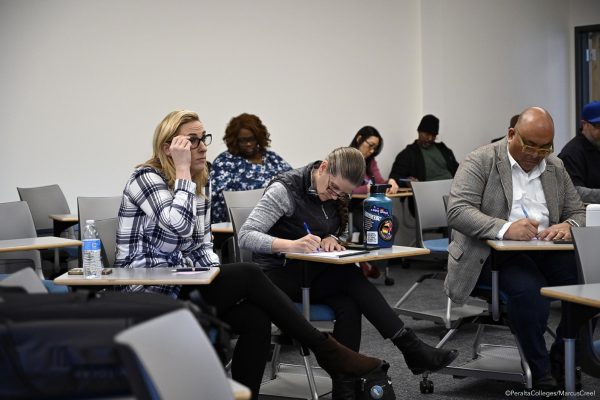
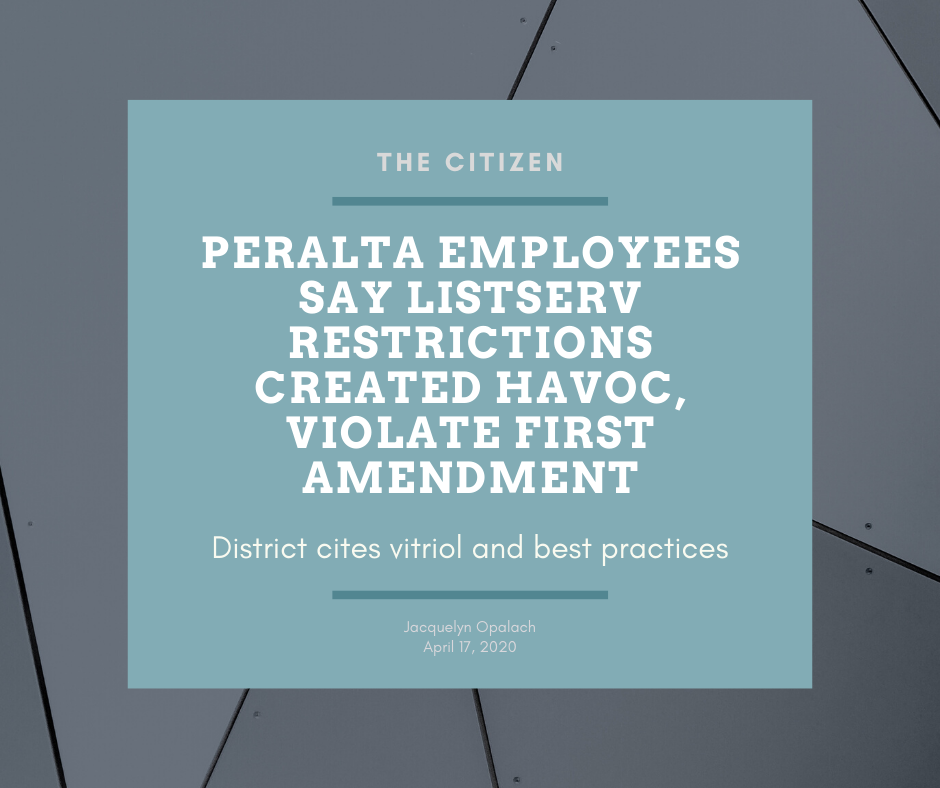



Michael B Reiner • Jul 19, 2020 at 3:39 pm
The student newspaper did an excellent job describing the issue and the protagonists. While I appreciate Chancellor Stanback Stroud’s desire for civility on the listserv, individuals who violate District policy should be held accountable, rather than taking down the communications vehicle for all. That is what Castro and other authoritarians do – close the newspapers and take control of radio and TV… By the way, Dr. Stroud did something similar while president of Skyline College. She does not like criticism. It appears she is an advocate of silencing voices. However, Demers v Austin affirms academic freedom to criticize administration. Censorship is unAmerican.
—
Michael B. Reiner, PhD, is a higher education consultant and educational researcher. Previously, he was a professor of psychology and college administrator at City University of New York (CUNY), Miami Dade College, the Riverside Community College District, and SMCCCD. He can be reached at [email protected]
Karen Weinstein • Apr 26, 2020 at 9:29 pm
Really good writing on a very difficult topic. The author gives a good sense of both sides of the issue., not an easy task with emotions flying high. Congrats to the reporter.
Lowell Bennett • Apr 18, 2020 at 11:17 pm
Outstanding article!